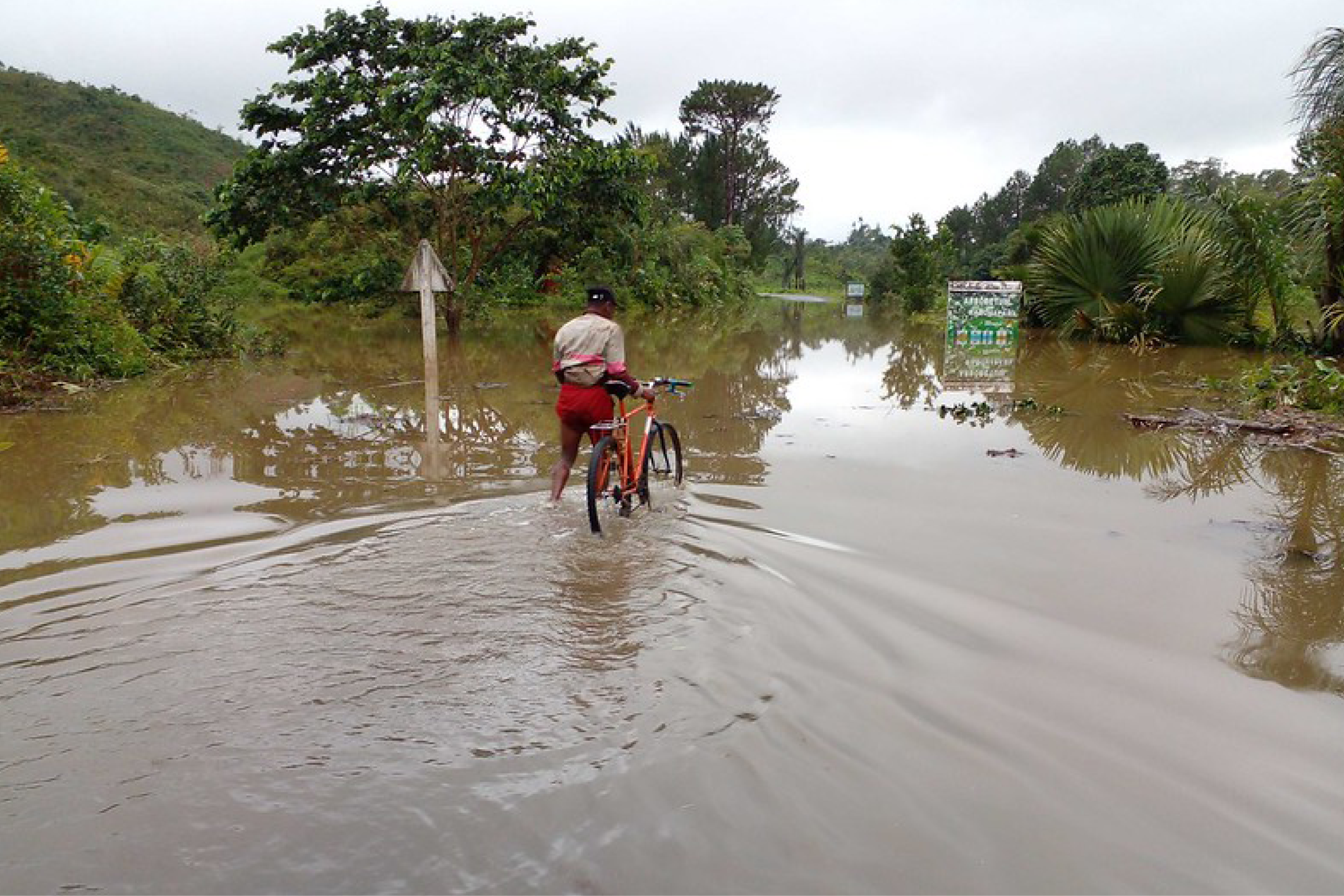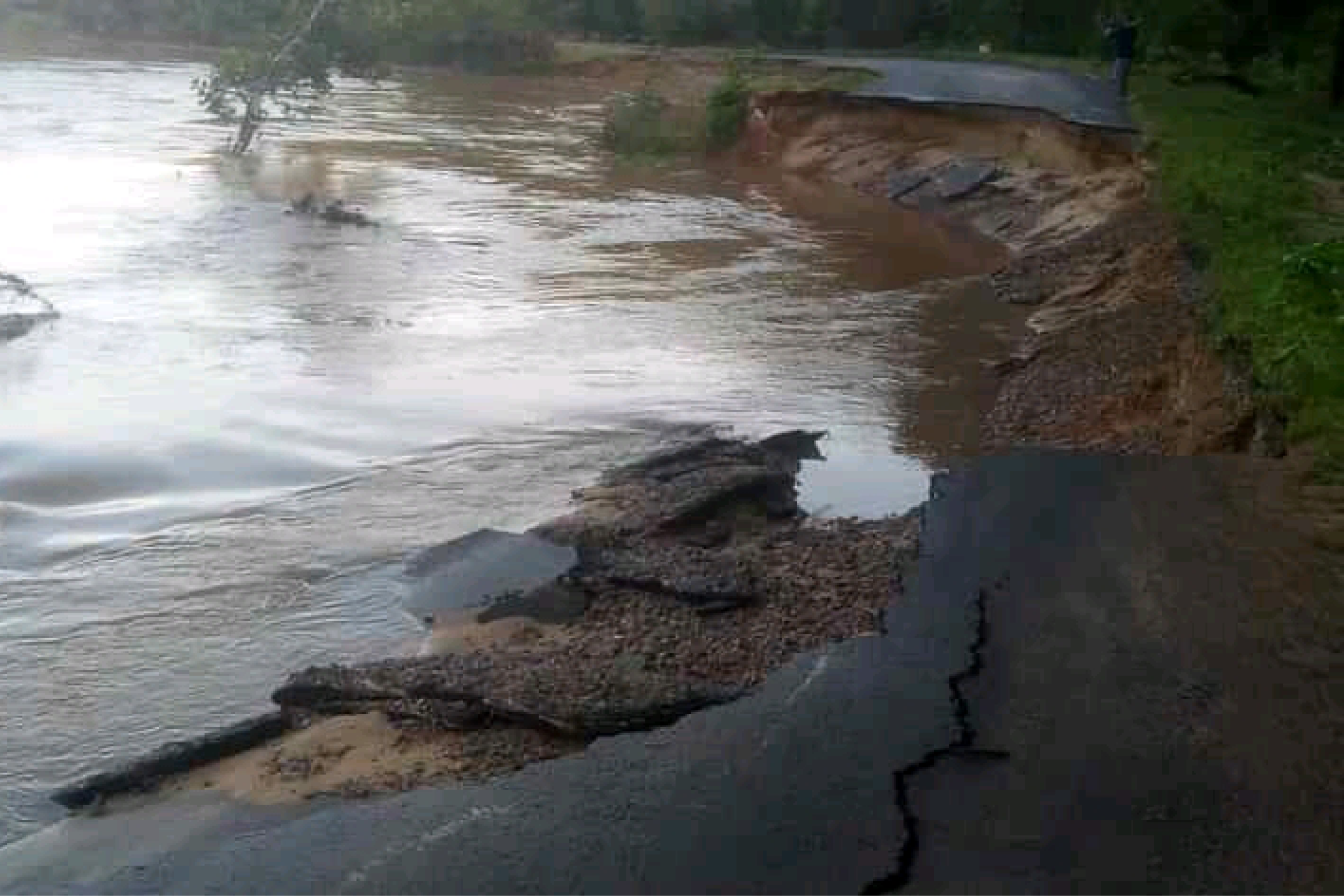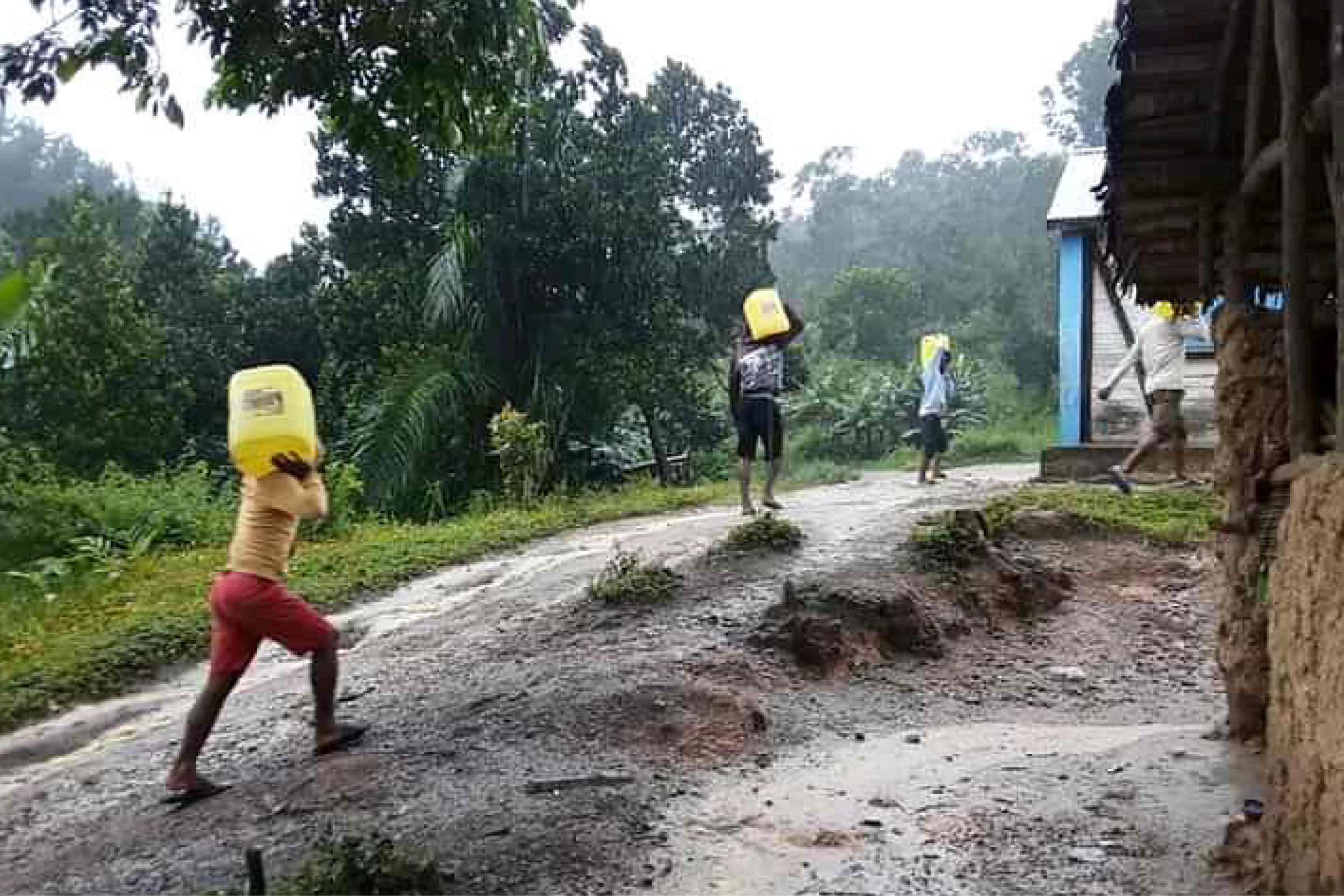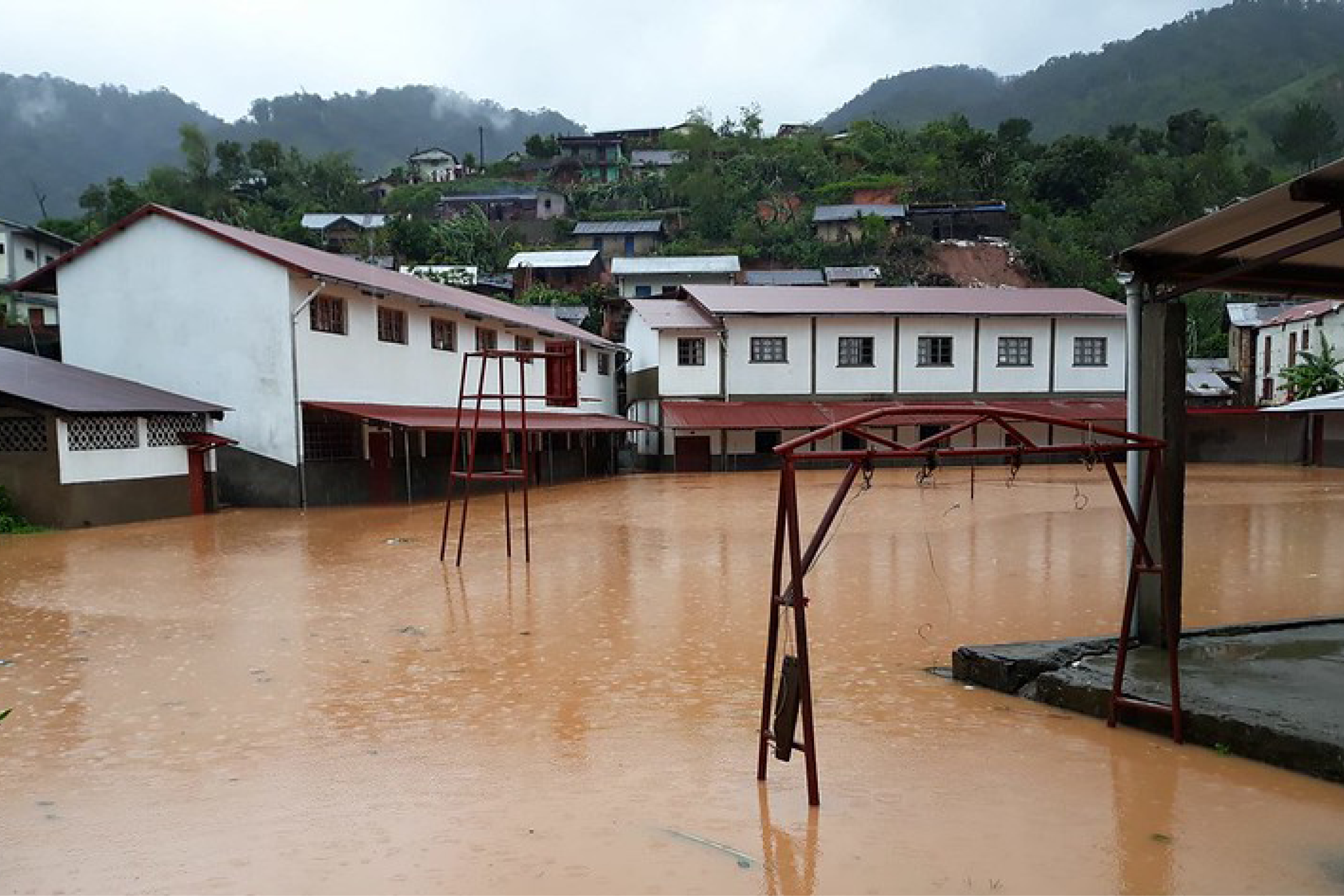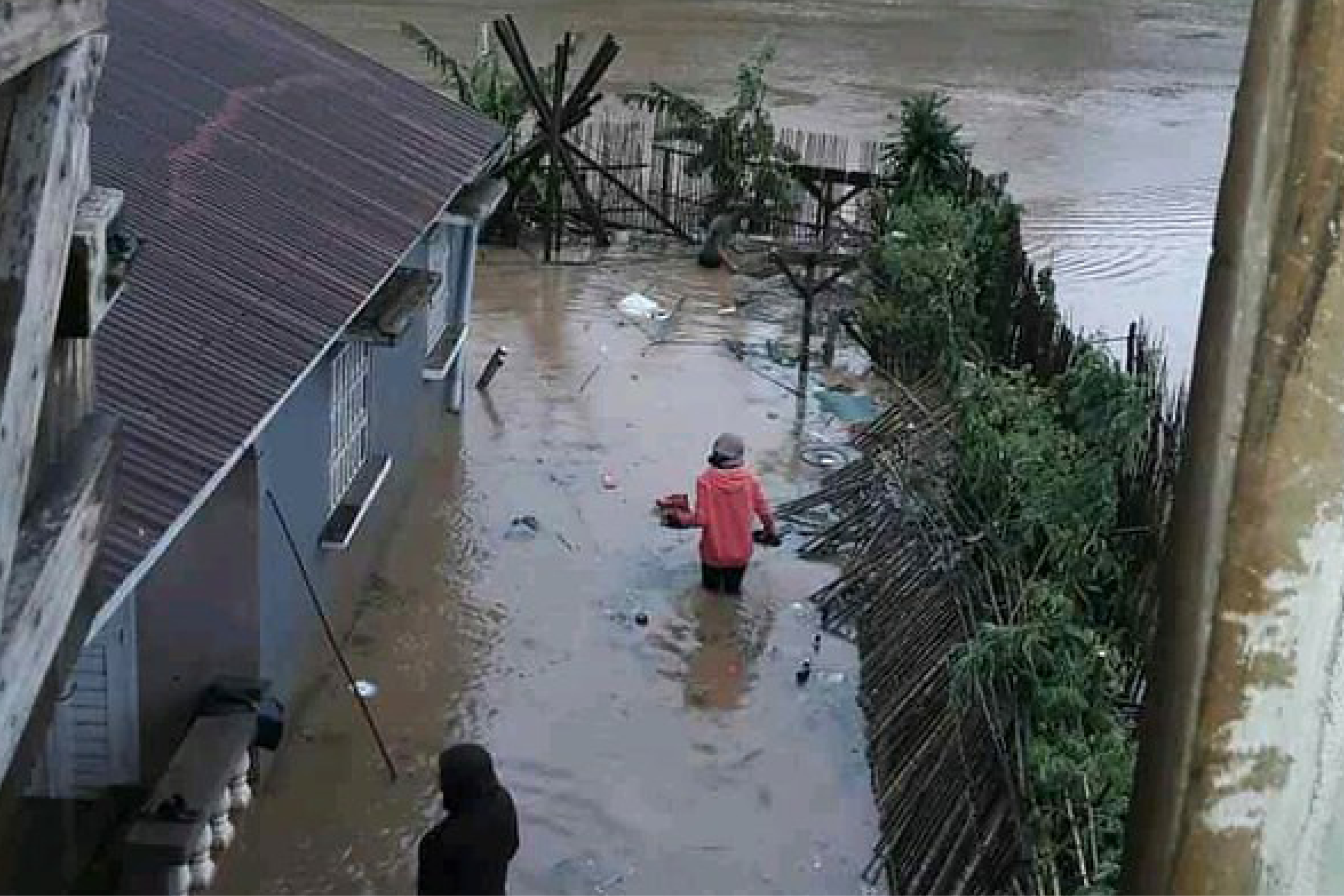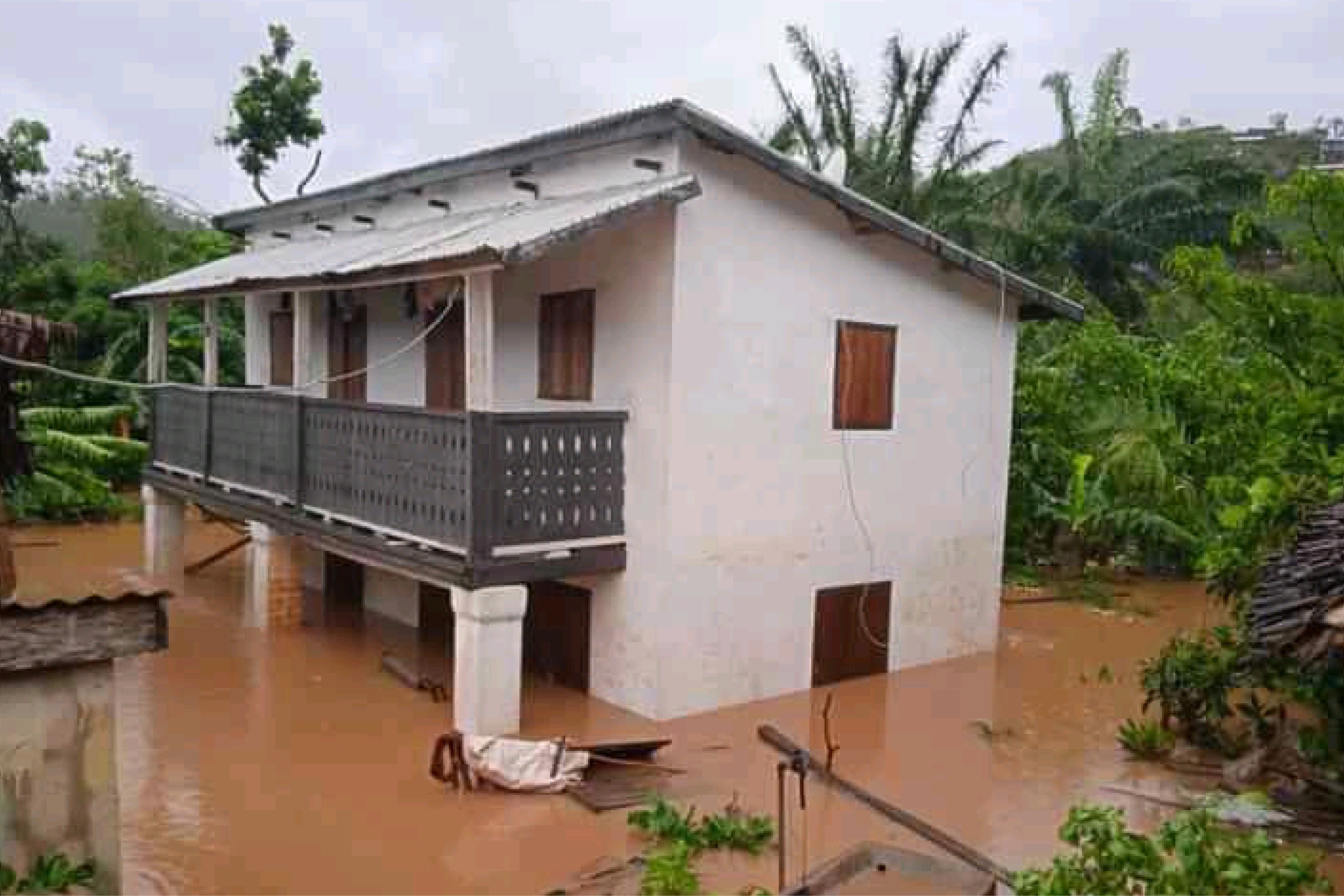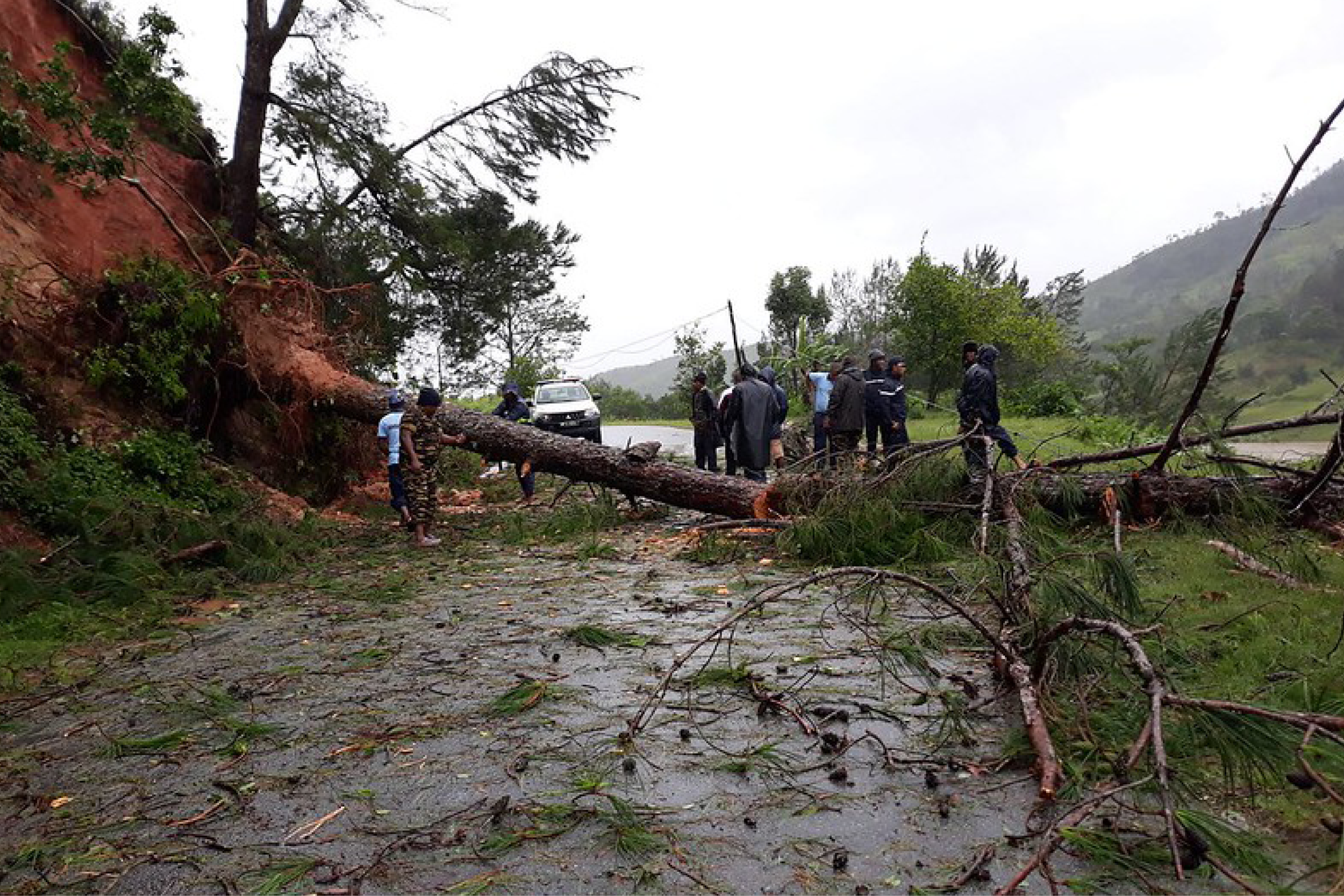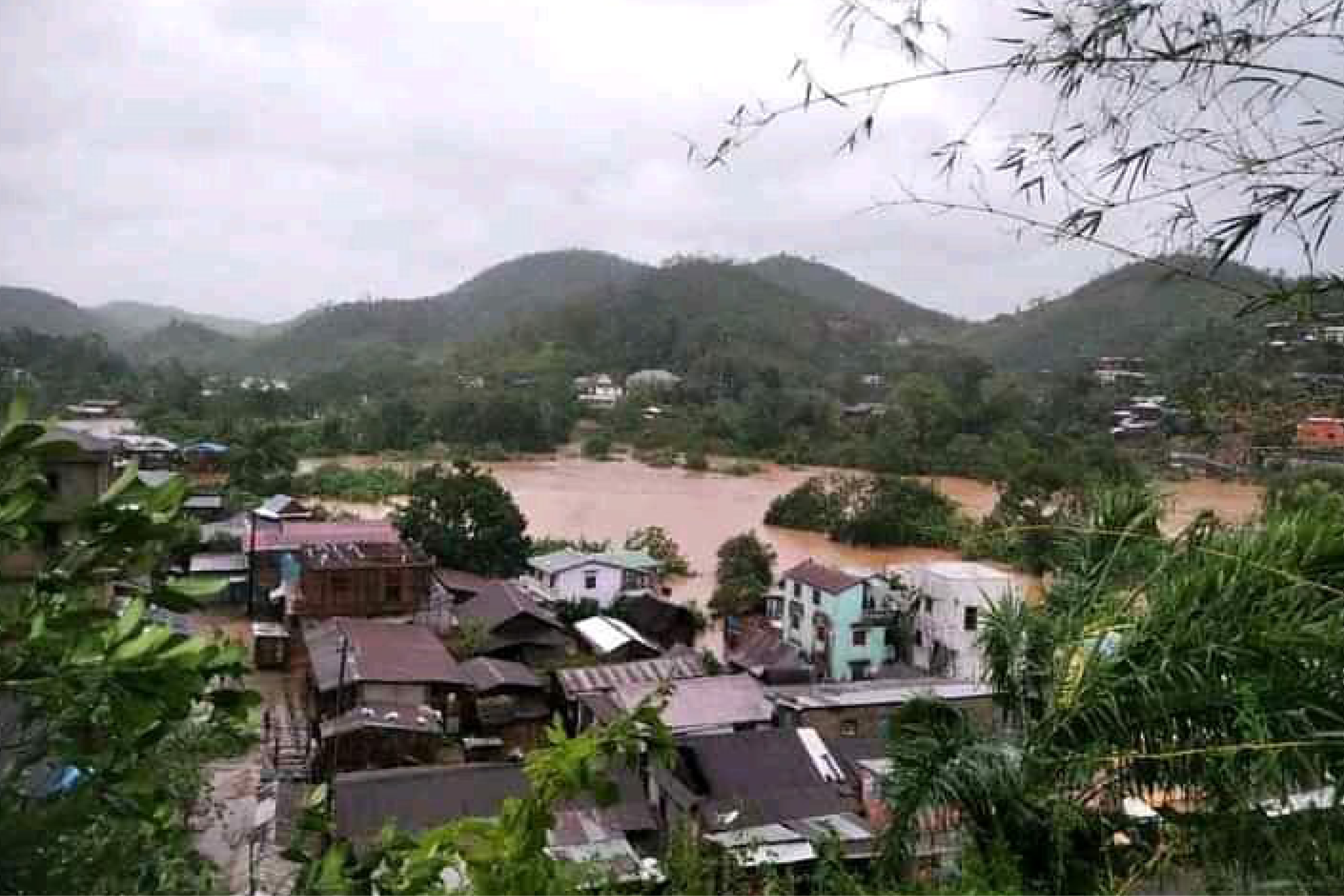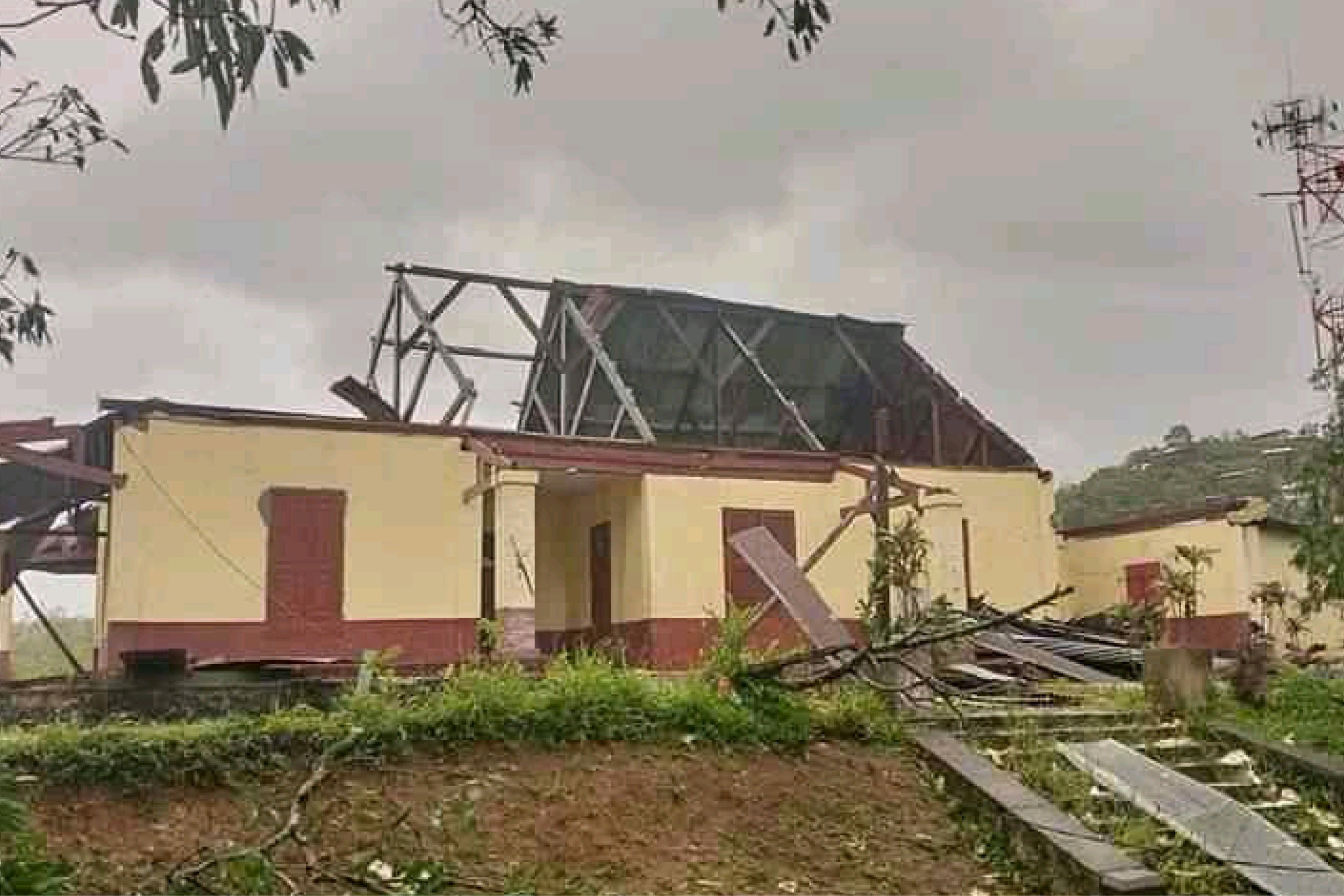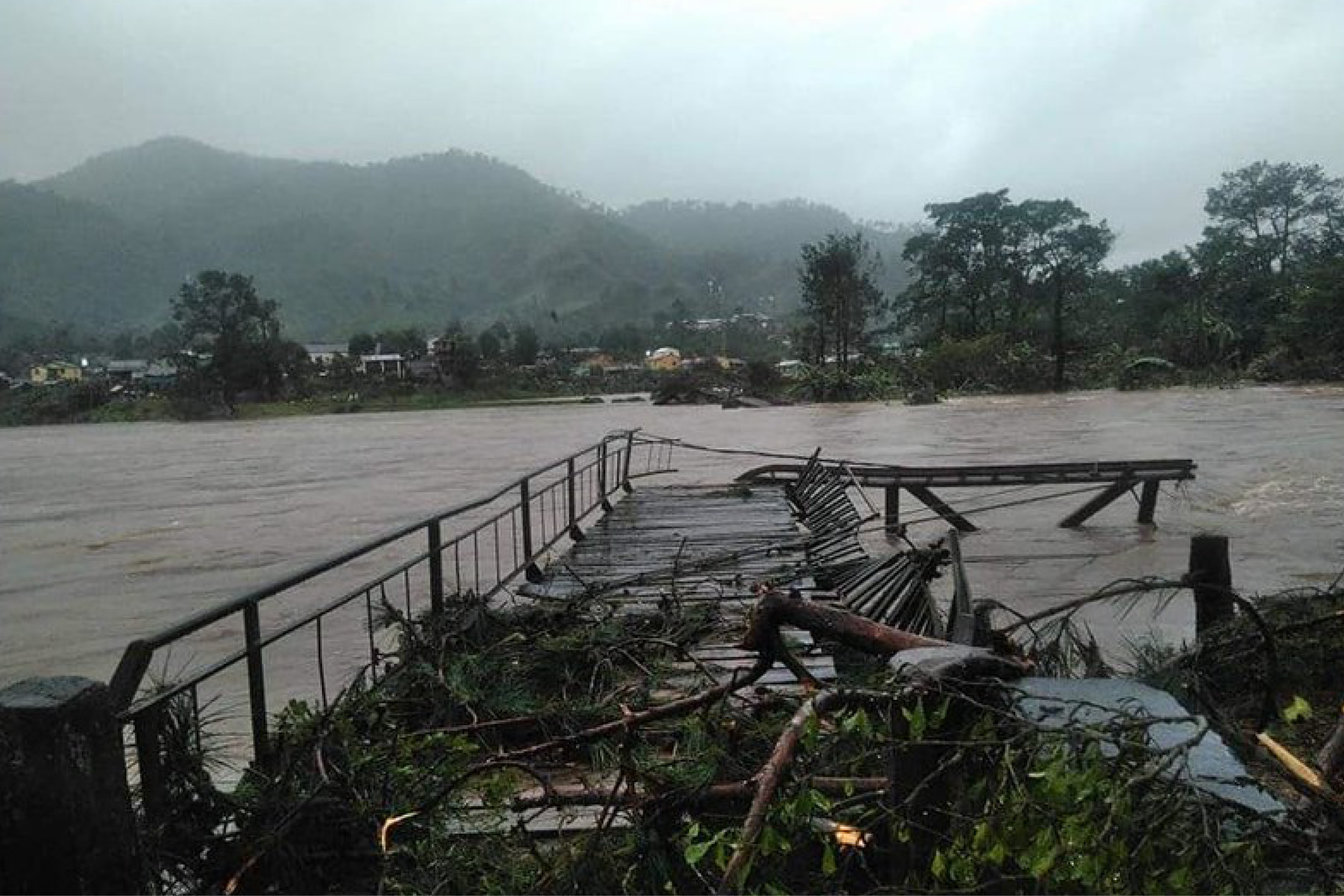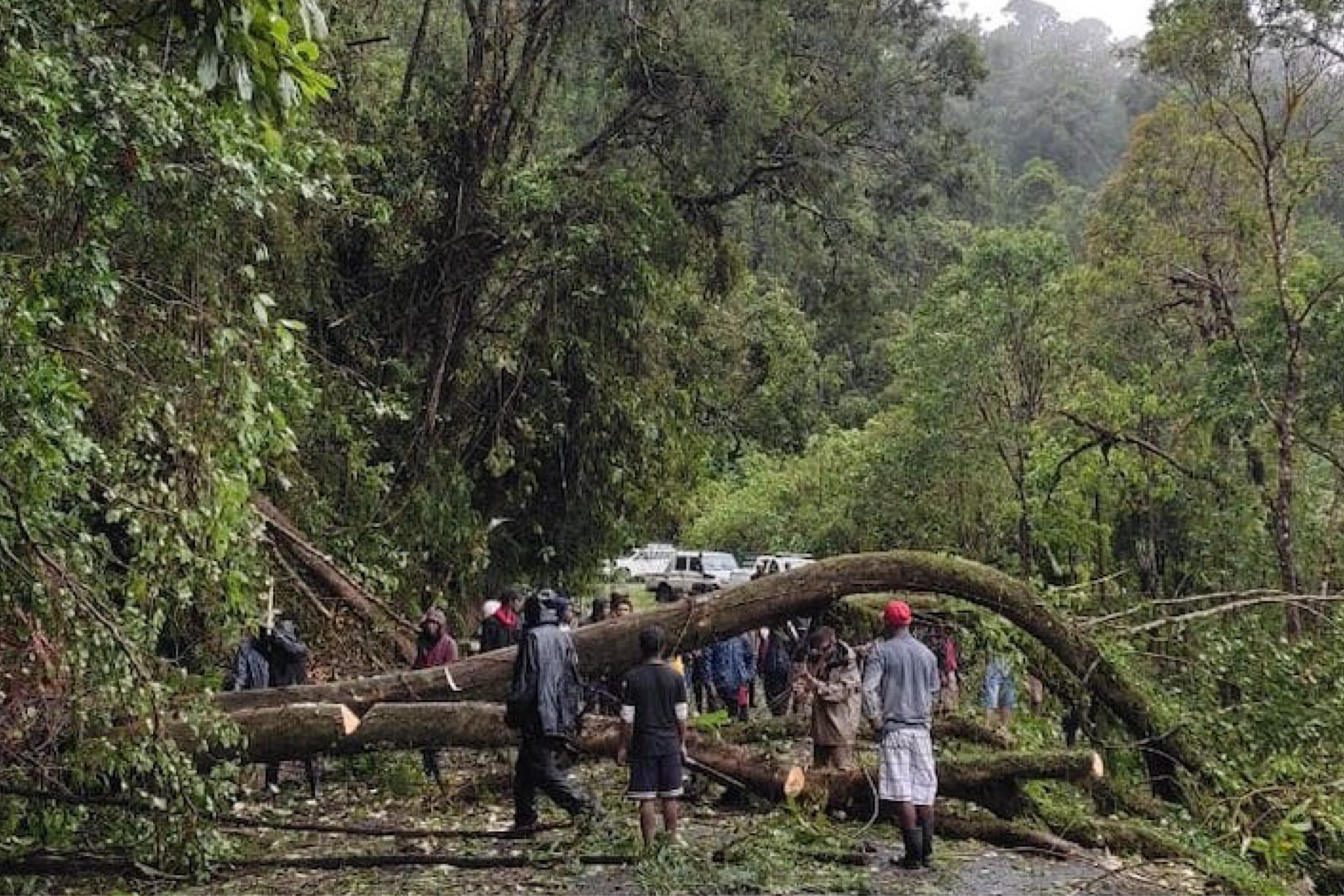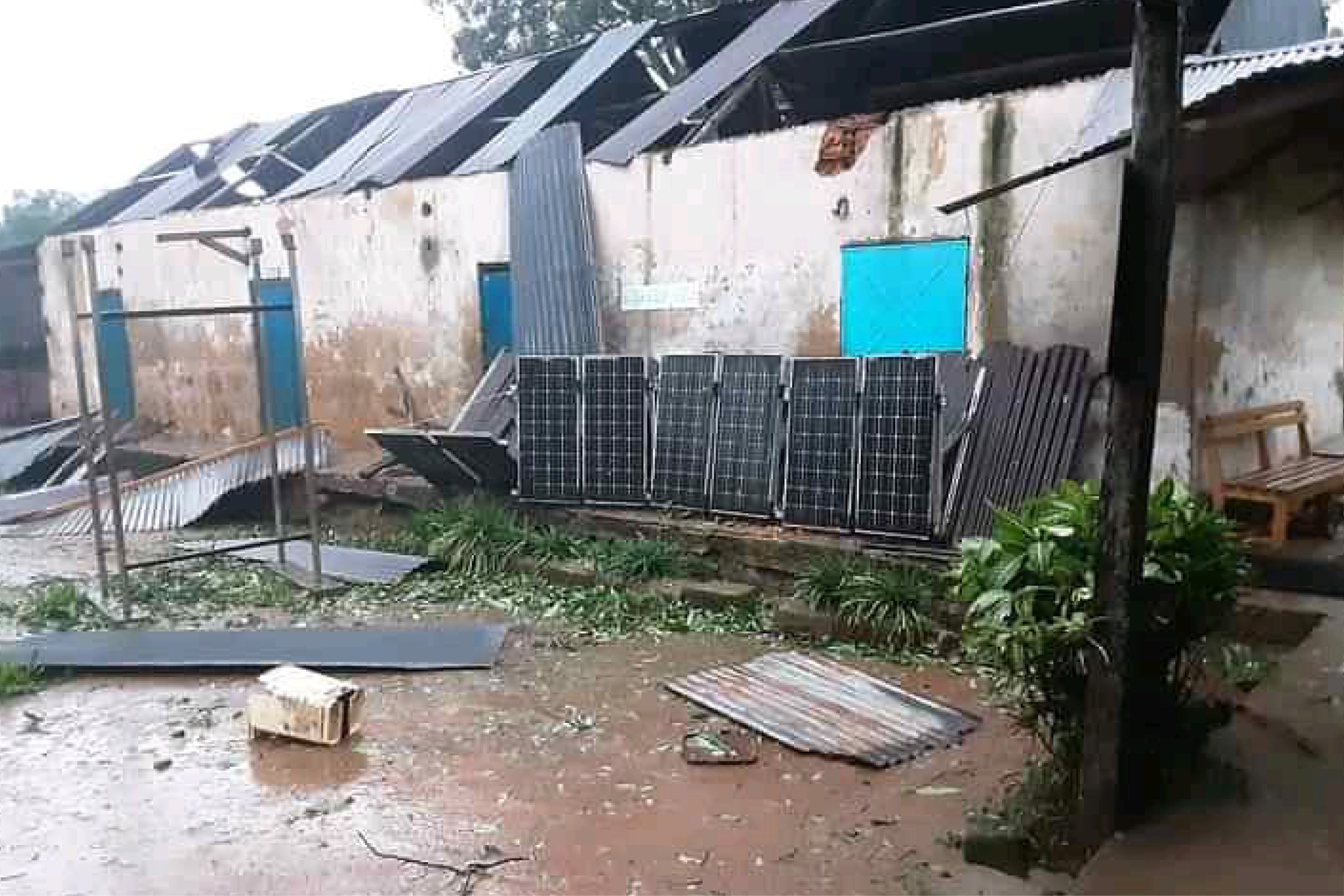07 Feb Emergency Response: Cyclone Batsirai
As our community of supporters, many of you are aware that Cyclone Batsirai hit Madagascar this past weekend. With torrential rains and Category 3-4 winds causing major destruction to buildings and roads, the storm has displaced at least 150,000 people nationwide. Batsirai came on the heels of tropical storm Ana, which – having passed through the region just two weeks ago – had already weakened infrastructure and displaced many.
Today, the governor of the Vatovavy region stated on Malagasy national television that 90% of Ifanadiana District was impacted by the disastrous storm.
As a global health organization working in an environment susceptible to cyclones and other catastrophic events, Pivot maintains an emergency fund to nimbly respond to urgent needs from unforeseen disasters. Of the $30,000 in the fund for 2022, $10,000 was spent supporting Cyclone Ana response. Much more than the $20,000 remaining will be needed to respond to Batsirai – and, of course, there is always the possibility of more to come this cyclone season and beyond.
Please consider making a donation to Pivot’s Emergency Response Fund to aid those impacted by Cyclone Batsirai and keep us prepared for the realities of saving lives in such a fragile environment. Life without a safety net is an ever-present reality in rural Madagascar; we strive for that not to be the case in the places where Pivot serves. As hundreds of people shelter in rural health centers waiting for relief to come, or survive on emergency kits the Pivot team distributed on Friday before the storm hit, we know people are depending on us, and we thank you for your solidarity.
What we know about the impact of Cyclone Batsirai and our support to local response efforts so far:
-
-
- Our teams organized a rapid turnaround on the urgent procurement of 1,300 emergency kits containing rice and basic supplies distributed across the district, starting with those who have been displaced.
-
-
-
- Across five of the district’s fifteen communes, at least 1,800 individuals are currently in emergency housing; we expect that number to grow significantly as we establish communication with more distant villages. With electricity down in the majority of the district, we are still working to gather information about the extent of the damage and displacement. Mobilizing to equip community leaders and health officials with solar power banks is one of our short-term priorities.
-
-
-
- Roads surrounding Pivot headquarters in Ranomafana are blocked by flooding, fallen trees, collapsed sections, and downed power lines, preventing access to many health facilities, including the district hospital. The Pivot team has been working around the clock in collaboration with regional officials to ensure that access via the paved road is restored. As construction gets underway to repair other majorly damaged roadways, Pivot will be supplying workers with food and supply kits, and helping organize community-led efforts to clear debris from the road by hand.
-
-
-
- We are coordinating a temporary relay system for the transport of patients who require referral outside of the district, the replenishment and distribution of essential medicines across the district (some destroyed by flooding), and the movement of clinicians across facilities where their services / specialities are most needed. Our social work team is dispatching personnel to make house calls and provide psychological counseling.
-
-
-
- Clinical teams are preparing for an imminent influx of patients belatedly referred to hospital care. In the coming weeks, we expect to see an uptick in patients seeking care as a result of injury, food insecurity, and infectious disease brought about by displacement and compromised access to clean water.
-
Over the next few days, we will be working with local authorities to launch exploratory missions to the off-road regions of the district to assess the extent of the damage, shore up health facilities to respond to the ongoing needs of the population, move more emergency supply kits to those affected, and determine next steps – both short and long term. We are working in partnership with UNICEF and Médecins Sans Frontières, who will visit Ranomafana later this week to provide support in Ifanadiana District and consider the needs in two other districts directly affected by the storm.
We will keep you updated as the situation unfolds, and we thank you for your partnership.

